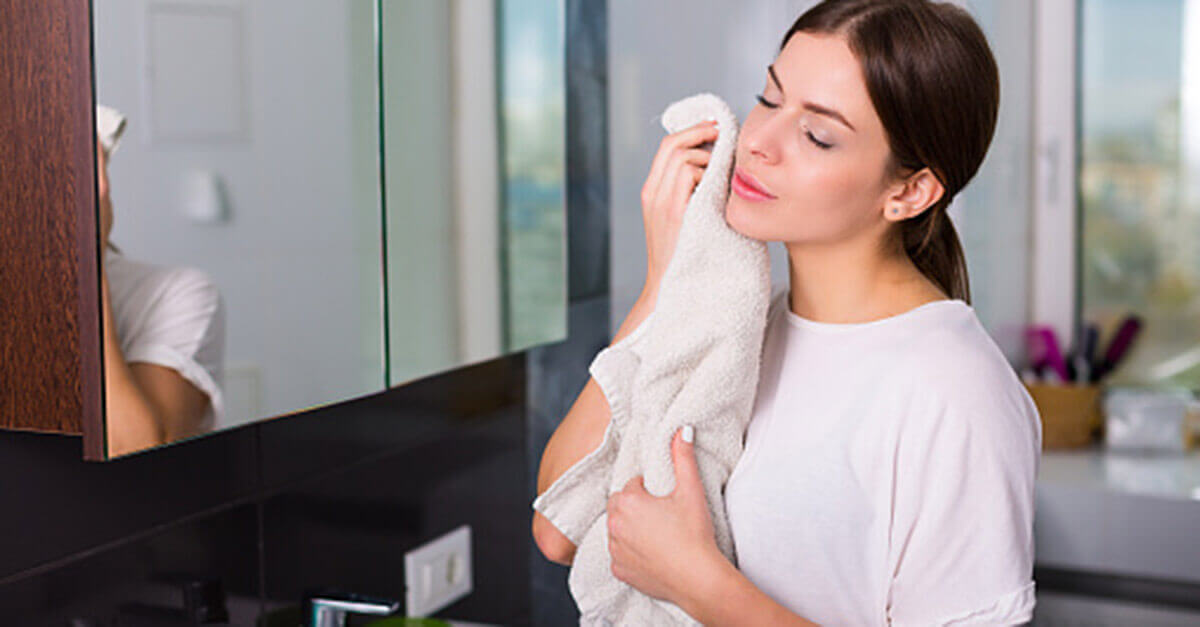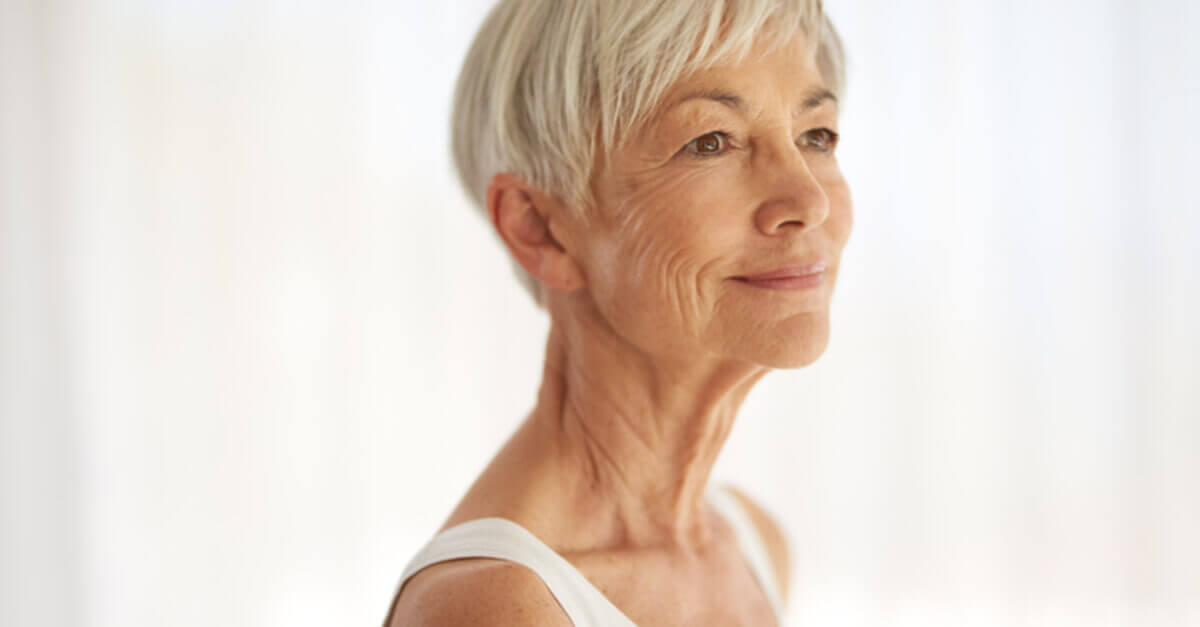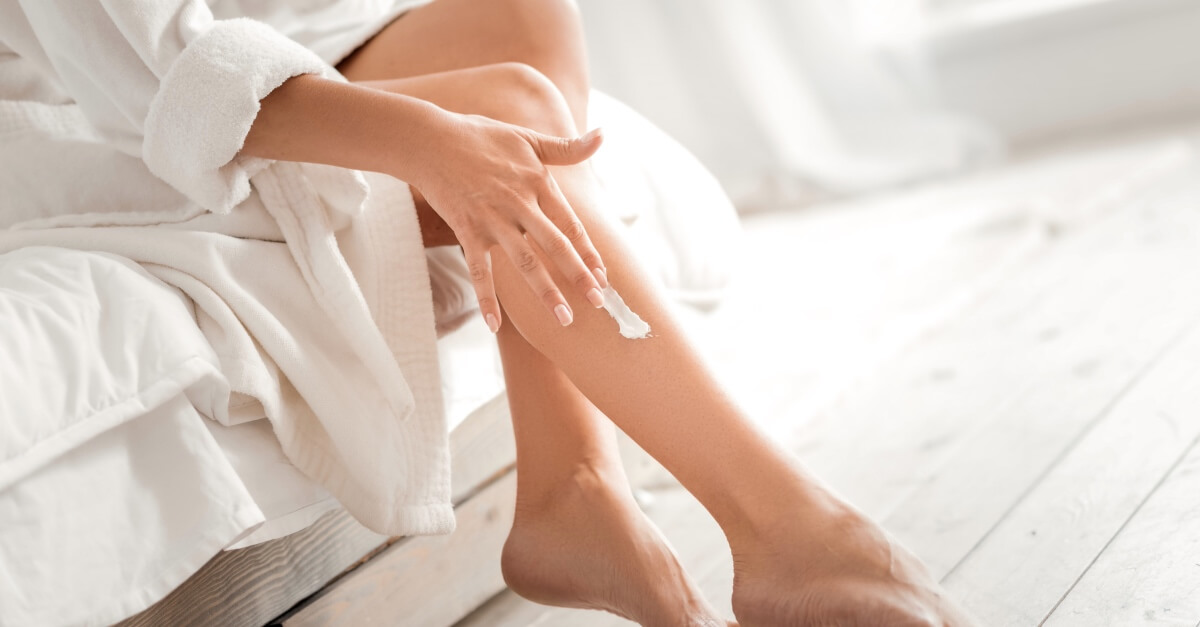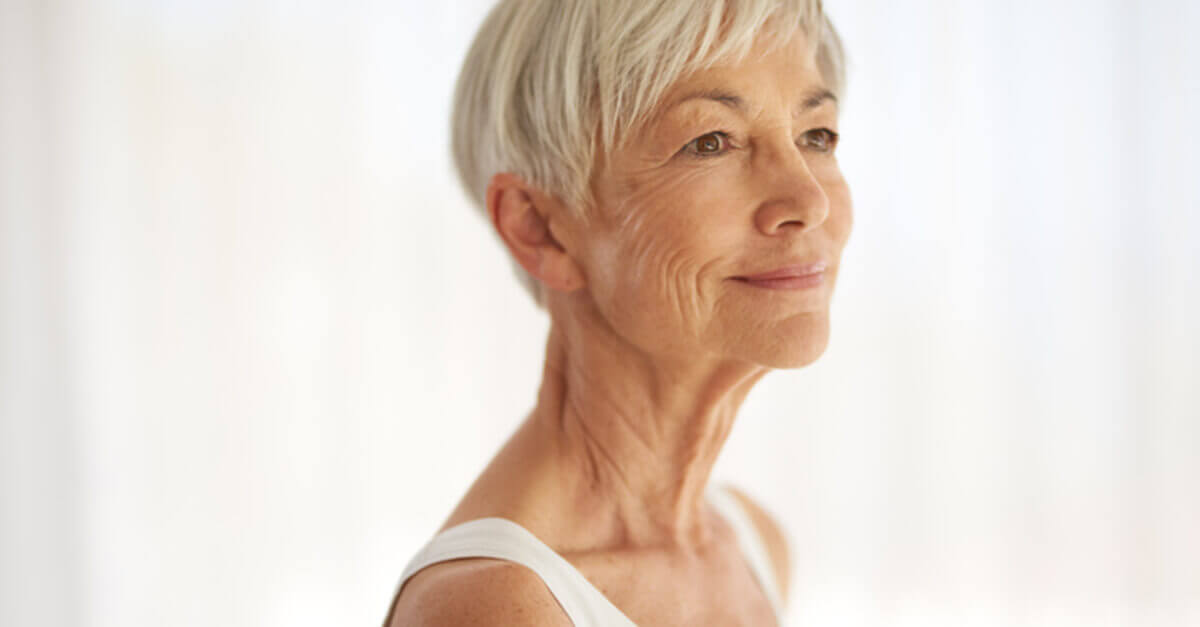Essential Oils and Women’s Health
Like many women, you may have started using essential oils to help promote a relaxed state of mind or to increase your ability to focus and concentrate.
If you’re happy with how your favorite single oils or blends enhance your daily living, you’ll be interested to know how they can also help support several important aspects of your women’s health.
There are various holistic uses for essential oils, all the way from puberty to menopause. Whether you have challenges with premenstrual symptoms, are experiencing pregnancy-related nausea or are having hot flashes, essential oils may be able to support healthy functioning.
Read on to discover which essential oils for women’s health are applicable to your specific concerns and needs. After reviewing this guide, you are sure to have natural and helpful ideas for managing each new phase and experience of your life.
Essential Oils and Women’s Hormonal Health

Hormones such as estrogen, progesterone, and testosterone occur naturally in every woman’s body. These chemicals fluctuate constantly, especially during major life events like puberty and pregnancy. By understanding how female hormones affect your skin, body weight, and libido, you can choose the right essential oils to help you cope with unpleasant symptoms and support a more balanced way of life. You can also use your favorite aromas to improve your self-esteem and confidence.
Supporting Healthy Skin

Hormonal changes affect the skin from the preteen years all the way through menopause. Acne is one of the most common skin issues that prompt women to seek natural ways to support skin health.
After proper dilution in a base moisturizer or natural carrier oil like Grapeseed or Camellia, essential oils like Tea Tree can be used to make acne-fighting roll-ons when diluted in a carrier oil. Lavender is also wonderful for supporting healthy skin:
Lavender: Excellent for both skin and hair, Lavender is a powerhouse essential oil. Adding a few drops to your favorite carrier oil and massaging the mix into the head is a great way to help soothe an embarrassing, dry, flaky scalp. When added to natural cleansers and moisturizers, Lavender can help keep skin soft, hydrated and clear. For the scalp, a 2% dilution of Lavender is safest, but for facial application, a 1% dilution is recommended.
Tea Tree: There’s a reason so many top-selling beauty products contain Tea Tree–it works! Tea Tree essential oil is excellent for the skin. It can help keep pores clear, prevent blemishes and keep oils at bay. It’s also great at fighting body odors when used with a body wash at a 1-2% dilution, and can help keep feet healthy and free of itchiness and irritation.
When applied properly, essential oils help support skin balance and make it look healthier. They also promote a brighter and more youthful appearance. You can even add essential oils into your K-Beauty routine!
Supporting Aging Skin

Many modern women in their 30s and even 20s are now seeking more holistic ways to relieve the signs of aging. From age 40 and onward, reducing the appearance of time on the skin becomes a top beauty priority.
Resin-based oils such as Frankincense, Myrrh, and Elemi can be diluted in your favorite carrier oil and applied to your face. These oils are known to help reduce the appearance of scars, as well as helping to balance sebum, the natural oil found in the body. Geranium Egyptian and Ylang Ylang are also excellent choices for helping to introduce added moisture to the skin, which helps your complexion look more supple than before.
Supporting Dry Skin

Dryness is another typical skin problem for women, especially if you live at a high altitude, experience harsh winters or if you spend a considerable amount of time in the sun. When diluted and combined with a carrier oil such as Almond or Evening Primrose, essential oils like Lavender, Carrot Seed, and Bergamot will help to awaken your senses while providing humectant and emollient properties to your parched face, neck, and chest.
Essential Oils and Weight Loss

Women’s bodies are unique because they store more fat in their bodies than men. Add daily stress and life events like pregnancy or menopause—and losing weight can be more difficult than you first realize. If you’re trying to eat right and exercise regularly but still feel that you need to make progress, you might be wondering if essential oils can help you lose weight. The answer is that while there is no magic cure that makes losing weight easier, there are oils that can support your weight loss journey.
Grapefruit
The sweet, fresh, citrusy aroma of this essential oil isn’t the only thing it’s good for. Grapefruit actually works to activate enzymes that help your body break down brown body fat, which is a special type of fat that can burn calories at a very high rate. In fact, brown body fat can generate three hundred times more heat than any other tissue in the body [1]! Not only that, but Grapefruit is rich in certain compounds, such as D-limonene, that help support the metabolism. It also supports the cleansing and drainage of lymphatic glands, allowing for better nutrient absorption in tissues and the bloodstream [2].
To use, diffuse alone or in a blend, or dilute to 1% in a carrier oil and apply topically to the stomach to help support the digestive system.
Ginger Root CO2
When you’re trying to lose weight, it’s important to consider ways to support your digestion and absorption of nutrients. Ginger Root CO2 contains the constituent gingerol, which has been shown to reduce disease-causing inflammation in your intestines and overall improve absorption of the vitamins and minerals you’re consuming [3]. And if you’re absorbing more vitamins and minerals, then you’re helping to support your body’s cellular energy and help create weight loss.
Enjoy the warm and spicy scent in a diffuser or personal aromatherapy inhaler. To apply topically, dilute to 1% and massage on the abdomen to aid in digestion and stimulate circulation.
Cinnamon Leaf
A happy gut is important for healthy, long-term weight loss. Cinnamon Leaf Essential Oil contains certain compounds that are known to promote the growth of healthy bacteria in the upper gastrointestinal tract that can aid in digestion. One of these compounds is eugenol, which Cinnamon Leaf contains a very high percentage of. Eugenol may reduce symptoms of gastrointestinal distress such as upset stomach, nausea, and diarrhea [4].
When using Cinnamon Leaf, keep in mind that this essential oil is a mucous membrane irritant and can cause coughing or irritation to the nose, eyes, and mouth. Very little of this powerful oil is needed to enjoy its benefits — dilute to a maximum of 0.6% if you would like to apply it topically or diffuse it for small amounts of time or in a blend with other essential oils.
Lemon
So bright and fresh, Lemon Essential Oil is great to use for a multitude of uses, including helping with weight loss goals. When the weather is gray and dreary outside, Lemon can add a pop of brightness into your life, helping to motivate you out of the winter blues. Diffuse or use in your personal aromatherapy inhaler or necklace to enjoy this amazing citrus oil.
Turmeric CO2
This warm, spicy scent may be familiar to cooking enthusiasts, but did you know you can use Turmeric Essential Oil to help provide comfort to stomach issues? When uncomfortable bloating, gas, and cramping is deterring you away from your weight loss goals, add a couple of drops to a teaspoon of your favorite carrier oil and massage onto the abdomen.
Try adding 2-3 drops of Lavender essential oil per 100 mL of water in an essential oil diffuser. Smelling the aroma throughout the room can help promote a relaxed state of mind that leads to a more comfortable sleep. Getting more rest may just give you the extra boost to start that new workout regimen. It may also help improve your sense of alertness, which could help you to power through challenging exercises. When combined with a carrier oil and applied to the wrists or back of the neck, a few sniffs can help you unwind after a stressful day.
Over time, using calming essential oils supports your willingness to embark on a new program. Other oils for promoting the energy and habits that help lead to weight loss include Orange and Pink Grapefruit. These bright scents are famous for their energizing properties.
Essential Oils and Women’s Libido

Loss of libido or sexual desire occurs for a variety of reasons. Some women experience it during or after pregnancy due to hormonal fluctuations and lifestyle changes. Other women find themselves lacking a desire for their partner when going through menopause. Instead of feeling embarrassed by your symptoms, or attempting to remedy the situation by taking prescription medicine, you may be able to support healthy libido functioning more naturally with essential oils, by letting yourself unwind and focus on the moment.
Hormones

Hormones play a big part in our sexuality and when they are out of balance, the body suffers. Studies have shown that Clary Sage, Neroli, Lavender, Geranium, and Rose Otto are helpful in reducing stress and improving sexual function.
The Balance Synergy can also be used to calm and bring balance to a woman’s life. Not only is this blend balancing and calming, but it also has a few essential oils, such as Jasmine and Ylang Ylang, that are known aphrodisiacs. Win-win!
When you create an environment for relaxing your mind, you may soon find your desire returns for your partner.
No matter the cause, fatigue can throw a real wrench in our desire for intimacy. Improving sleep quality will do wonders for mood and overall health. Among others, Sandalwood Australian, Bergamot, and Vetiver are some of my favorite essential oils for encouraging a great night of sleep. You’ll be much more likely to feel up to stealing a few special moments with your partner when you’re well-rested. Be sure to check out this blog post for more great suggestions for improving sleep!
Stress

Stress can also lead to a drop in libido. In 1996, a study determined that 75-90% of all healthcare visits are due to stress-related health problems. Stress leads to high blood pressure, heart problems, anxiety, and depression. All of these issues can lead to lower libido. When you’re not feeling your best, you’re not in the mood.
Once again, we see some overlap in essential oils that are not only helpful for stress but other issues we’ve already addressed. Bergamot, Neroli, and Lavender are favorites for reducing stress and uplifting the mood. Reducing stress helps us become the best versions of ourselves. When we’re able to relax, we can better enjoy being with the people that we love.
Grab your Clary Sage, dilute it in your favorite carrier oil and then massage it on your body to help soothe your senses. You can also try Rose or Pine oil. Remember to always use your single oils and blends externally and talk to your doctor if you have specific questions about how to apply them.
Aphrodisiacs

Last but not least, some people use essential oils as a supportive aphrodisiac. For centuries, people have used aromatic plants and floral waters to set the mood. Science is now catching up, and new studies aim to prove the efficacy of using aromatherapy to improve our intimate relations.
A study in 2010 was conducted to show the stimulating effect of Jasmine when used in an aromatherapy massage. Subjects exposed to Jasmine had a significant increase in breathing rate, blood oxygen saturation, and blood pressure, indicating an increase in autonomic arousal. Subjects reported that they felt more alert and vigorous than the control group, which received placebos [6].
Jasmine is a wonderfully uplifting essential oil that can help to balance mood and improve mental wellness. This study is just one of many that explore the use of essential oils for improving sexual health and wellness. Though there are many oils known for their aphrodisiac properties, some of my favorites include Sandalwood, Rose, Vetiver, Lavender, Bergamot, and Black Pepper.
Essential Oils and Menopause

Just ask your mother or grandmother—the end of your monthly period, also known as menopause, often sparks a host of unpleasant symptoms. These include hot flashes, mood swings, and night sweats. While the temporary condition can be very difficult for some women, there are helpful and holistic essential oils for symptoms associated with menopause available to help make your days—and nights—much easier.
If you’re looking for the right essential oils to manage hot flash symptoms, just smelling Peppermint oil can quickly make you feel as if you are cooler and calmer and support healthy functioning. Keep some by your bed to use before you go to sleep or to rescue you from discomfort in the middle of the night. Sometimes, all a woman needs is a little boost of femininity and self-esteem to help take on life’s challenges. Rose oil has a sultry floral smell known to be helpful in promoting improved sexual function as well as inspiring you to enjoy the moment.
Essential Oils and Your Period

A woman’s period is a sign of sexual health. For some, it can also be a monthly inconvenience (raise your hand). Not to worry—there are several essential oils that may help support menstrual health, as well as promoting a sense of peace when experiencing mood swings. You can also use your favorite essential oils to increase your sense of alertness.
Review this recipe for a soothing Epsom salt bath, which includes eight drops of Elemi and eight drops of Blood Orange. The combination of Elemi’s analgesic properties and Blood Orange’s ability to help promote a sense of comfort. If you’d like, you can substitute Blood Orange for Sweet Orange or Bergamot.
If you’re feeling irritable before or during your period, try a calming Lavender oil massage. A Peppermint oil lotion or roll-on is extremely helpful for helping to enhance feelings of peace. You can also try indulging in the relaxing and sensual notes of Sandalwood oil or the cozy aromas of Chamomile.
Essential Oils and Pregnancy

You might be wondering if essential oils are safe for pregnancy. Plant Therapy has a handy Pregnancy and Nursing Safe download chart. In addition to the chart, there are a few things you need to know.
During Pregnancy
During pregnancy, our doctors frequently ask us questions like “What are you eating?”, “Do you consume alcohol?” and “Are you a smoker?”. This is because our growing baby receives all of its life forming nutrients from us, the mother. Whether or not we are eating right, exercising, or consuming caffeine during pregnancy can have drastic effects on our growing little one. Many of these variables have the potential to cross the placenta.
So what does the placenta do? “The primary function of the placenta in all species is to promote selective transport of nutrients and waste products between mother and fetus. Such transport is facilitated by the close approximation of maternal and fetal vascular systems within the placenta.”
Keep this in mind:
Essential oils are organic substances, and organic substances pass through the placental barrier and have the potential to affect the unborn baby.
With this in mind, when choosing to use essential oils during the first trimester we recommend very limited use. This is because so much change is taking place within our bodies. In general, we do not recommend active or daily use of essential oils during the first trimester and it may be best to avoid using altogether during this time. However, to assist with nausea you may consider adding a drop of Peppermint or Spearmint to a tissue and gently inhaling to relieve some of these symptoms.
Beyond the first trimester, there are some additional variables to consider.
First let’s discuss the means of use, as we all know there are several different methods to use essential oils. Through topical application, only a small amount of oil will actually reach your bloodstream and the absorption rate is slow. Through diffusion, you will receive a small but continued dose of essential oils via inhalation. Steam inhalation offers a high but very short dose of essential oils. Lastly, when using a personal aromatherapy inhaler, we receive a dose that is not as strong as steam inhalation but stronger than diffusion. [3]
While considering the means of use we must also reflect on how often we use essential oils. You may have heard us say with essential oils “less is more.” This is especially true when using essential oils during pregnancy. The more you choose to use essential oils, the more you will absorb, which may cross the placenta. It is best to limit essential oil usage to relieve symptoms such as fatigue, nausea, or occasional head tension. By limiting your use, you may still receive the wonderful benefits of essential oils without overexposing yourself or your growing baby.
The next thing to consider is a safe dilution percentage.
The last and most important factor to consider is the essential oils that you are using in your blends. We must remember that essential oils are contraindicated due to the nature of their chemical components, which may be too strong for pregnancy.
It is very important that you only use essential oils that are safe during pregnancy. This is where our list of Pregnancy and Nursing Safe oils will be very helpful. This list was created by our team of Certified Aromatherapists here at Plant Therapy and has been approved by world-renowned essential oil safety expert, Robert Tisserand.
Breastfeeding

When using essential oils while nursing it is important to keep in mind that they do have the potential to cross over into your milk supply. Normally less than 1% of the amount of oil the mother absorbs will cross over.
With all this in mind, one must consider the following when using essential oils while nursing:
- The method of use
- The amount of essential oil used
- How often you choose to use essential oils
- How often feeding occurs and in what volume
- Duration of use
- Your baby’s age and health
The more often we use essential oils, the longer the duration of use, the higher the dilution rate and the amount of absorption, the more essential oils have the potential to transfer to our milk supply. This can, in turn, affect our little ones. You can safely use essential oils while nursing, we just recommend keeping your dilution rates low, only using your oils as needed, and using essential oils that are safe for children and breastfeeding. Do not apply essential oils directly to the chest or breasts while nursing.
Embracing Essential Oils and Enhancing Your Women’s Health

There are so many uses for essential oils across a woman’s lifetime. If you have any questions about safe use for you or your child, don’t hesitate to consult with a physician or certified aromatherapist. Many of today’s gynecology and obstetrics professionals understand the benefits of essential oils for women and can help you choose the right scents and methods.
*These statements have not been evaluated by the Food and Drug Administration. This product is not intended to diagnose, treat, cure or prevent any disease.



